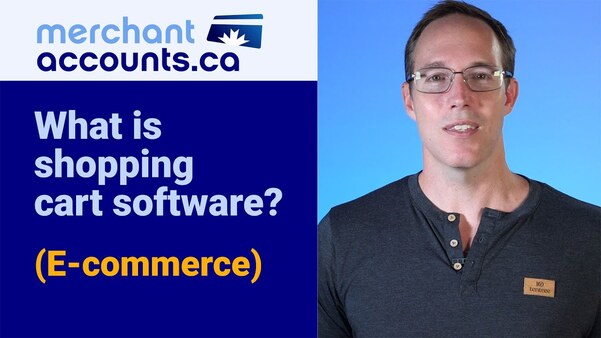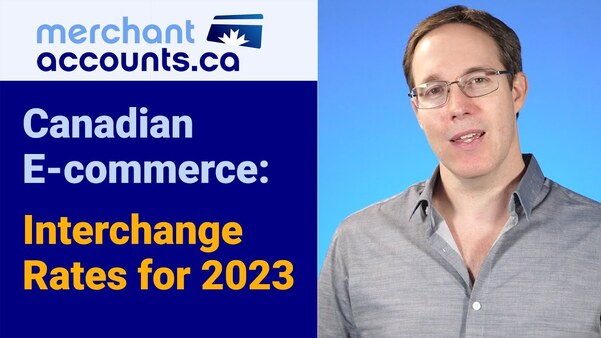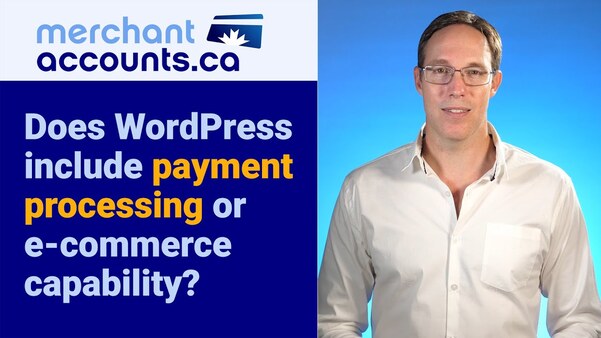December 01, 2022
by David Goodale
Shopping Carts and Payment Gateways: Understanding Compitibility
(Slightly edited from video transcript for greater readability)
Key Takeaways
Hello, David here at Merchant-Accounts.ca. Today I'm going to talk about shopping carts, payment gateways, and understanding the compatibility between them when building an e-commerce website. Stay tuned, we'll dig in one second.
If you're building an e-commerce website you probably want it to be a success. You want to make sure that it comes together, works great and it's effective. If you're new to e-commerce, several different components need to fit together, like the shopping cart and the payment gateway, how do you work through it all? If this is not your area of expertise I can imagine I'd be quite hesitant to pull the trigger by picking a payment processor, picking shopping cart software, completing all these tasks, and then not knowing if they will work together.

Shopping Cart
We just need to break it down logically. Part one is the shopping cart. The shopping cart is software that runs on your website and it powers those little add-to-cart buttons. For example: if you're in an online shoe store, and you see a drop-down box with quantity one, the color blue, size 10, and an add-to-cart button. The shopping cart is the software that runs on your website that keeps track of that information. If somebody clicks add-to-cart, it knows that you want to buy a pair of shoes, color blue, size 10 and as you go through the website, you may add more items to your cart. You may also add a t-shirt and a baseball cap then click the checkout button. The shopping cart is responsible for all of that.
The shopping cart at this point is going to take the items that are being added together in the cart and come up with an order subtotal, and then it's going to figure out how much tax to charge this customer. The shopping cart software is also responsible for the interface that allows the customer to type in their billing address. It will also show what the shipping options are such as overnight shipping which is an additional $30. The point is, the shopping cart's job is to keep track of what the customer's buying and figure out the order total. Just like the cashier at grocery stores, they bring stuff through the till it's to get to an order total. That's the shopping cart's job. Now, once it knows how much the customer needs to pay a request is made to the payment gateway.

Payment Gateway
At this point, the shopping cart sends a payment request to the payment gateway. The payment gateway is a service provided by your payment processor. It sits there and listens on the internet waiting for requests to come in. The shopping cart would say, Hey, payment gateway, wake up, it's shoes.com. I have a guy here, Dave, and he wants to buy shoes. Here's his credit card number, can you see if Dave has a hundred dollars for me? If so, approve the transaction. That's what ends up happening the customer will submit their card, the payment gateway receives the request, approves the transaction, then the process happens in reverse. Now the payment gateway says, Hey, shopping cart, one second to go. You gave me a credit card for this guy, Dave. Well, he had the money. It's approved so you can go and do all your stuff. Now the shopping cart knows that the order was successful.
It can send out the order confirmation to the merchant so you know that the order was approved. It can send a receipt to the customer. They have a receipt in their email inbox. Let's say you had an inventory module or a database. The shopping cart can record that it sold one pair of shoes, the color blue, size 10. Remove those from the inventory so the inventory can be updated. This is just, the e-commerce process in a nutshell.
Now, the important thing to understand, and this is very important, not every shopping cart knows how to talk to every payment gateway. When we talk about compatibility, I want to be specific. The payment request where the merchant's website says, Hey, payment gateway, wake up. It's me shoes.com. Well, it's just, it's basically like a database query, and I don't want to get overly technical. I'm not trying to describe how to code a request.

Payment Gateways Expect Information in Different Formats
All you need to understand is there is a format that the payment gateway's listening for. It's listening and expecting the request to come in in a certain format like name equals David amount equals 100. Another payment gateway may expect another format. It might be formatted, as customer equals David total equals 100. I'm just explaining the programming concept that the shopping cart needs to send a request in a specifically formatted way. If it doesn't know the format to send the request to the payment gateway, that means it's not compatible. That's the concept of compatibility. When you're trying to build an e-commerce website, it's very important to pick a shopping cart software that's compatible with your payment gateway.
The Payment Processor has a Large Impact on the Cost
I should be careful calling that a mistake, but it's probably not the best practice. The reason why is that the payment processor that you choose is going to play a big role in your costs. There's an application process where you have to get approved. Let's say that you're an event merchant doing concerts. Well, getting approved for that type of service is somewhat challenging. One payment processor might offer really good rates and another might not. What if you choose a shopping cart software that only works with this one processor, but that processor isn't so good at approving concert merchants, so you end up getting not a very good rate? The only point that I'm making is the best shopping cart.
Shopping Carts Should Support Multiple Gateways
Selecting shopping cart software that supports many different payment gateways is in the best interest of the merchant. It opens up several options for you. Let's say that you work with a payment processor and things are going great for a year but then something goes wrong and they treat you poorly. Maybe you get a couple of chargebacks and they put a big hold on your account which makes you frustrated causing you to want to move. However, the shopping cart software that you're working with only supports one payment gateway, theirs. That's a really big problem and a bit of an increasing problem because some e-commerce software has started to only use the payment gateways that they're partnered with. Meaning the shopping cart software provider might get a residual or some revenue from the payment gateway.
If they take all the other options away from merchants and shoehorning them all to one gateway, then the problem that I just described could happen. It's not really in the best interest of the merchant.
Custom Payment Gateway Integration
Something else to consider is doing a custom integration. If you're building your e-commerce website and people talk about integration or compatibility, you just need the payment gateway to provide their integration documentation or their guide. Earlier I talked about a transaction request. It just specifies this is how you format the request when you're sending it to us. Generally speaking, if you're doing your custom website, you don't have to worry about compatibility because whatever specification or integration instructions your payment processor gives you, your developers can handle it. If you're using something like Shopify or existing shopping cart software, you can't change what payment gateways they support. That's where it becomes really important to consider, what payment gateways that shopping cart software supports.
Conclusion
It's sometimes challenging to explain technical concepts in plain English. What we are trying to walk away having learned is that your payment gateway will have a specific format in which it expects to receive transaction requests. The shopping cart software that runs on your website will need to know how to format the transactions properly, in the way that the payment gateway is expecting. A shopping cart that knows how to do this is called a "compatible" shopping cart. This is the concept of integration and compatibility between shopping cart and payment gateway. If you are researching a shopping cart and payment gateway processor for your business I very strongly recommend to talk to your selected payment processor before you start building your e-commerce website. It's not the end of the world if you've already done this, but it's often helpful to check these things early in the planning stage. If you are in this situation and would like to talk someone about your e-commerce project, for any questions about shopping carts or payment gateways, or compatibility reach out to us at Merchant-Accounts.ca
Need professional guidance?
Contact us for a free one hour consultation.
Can I Help Lower Your Processing Fees?
If you found this content helpful, will you give me the opportunity to quote on your business?
View Rates







